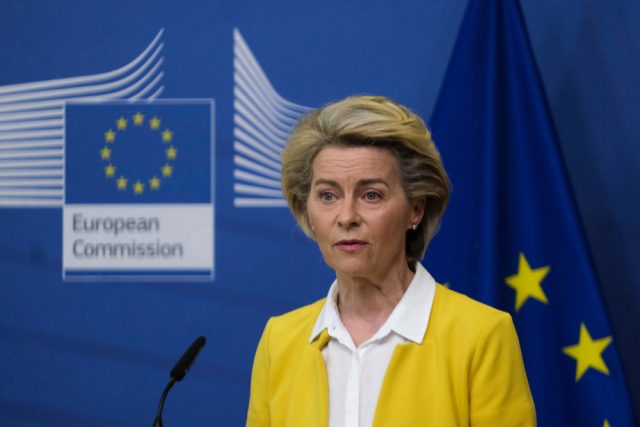
Alexander Winterstein, who is currently holding a high-ranking position in the Commission’s Directorate-General for Communication, has been designated as the campaign spokesman for Von der Leyen. This appointment is a significant indication of engagement with party politics and might lead to inquiries.
Winterstein, an Austrian, 55, is a long-standing European civil servant. Formerly Head of Unit for ‘Communications Policy’ at the Directorate-General for Competition, he was Deputy Chief Spokesperson at the European Commission between 2015 and 2019. Previously, he was Head of the Communications and Inter-Institutional Relations Unit at the Directorate-General for Competition and held several positions within the same department, including political assistant to the Director-General.
Elevated to his present position within the European Union’s executive from an earlier role in the Directorate-General for Competition Policy, Winterstein’s promotion coincided with the meeting of the European People’s Party in Bucharest, which endorsed Von der Leyen for another term. Nonetheless, the timing of this promotion prompted scrutiny from the press at a Commission press conference.
Although Von der Leyen is not contesting a parliamentary seat, she emerged as the principal nominee of the EPP for a subsequent five-year presidency of the Commission. According to the Spitzenkandidaten principle, the victorious party is privileged to nominate its lead candidate for the helm of the EU executive. In the 2019 scenario, Von der Leyen was not a Spitzenkandidat, leading to parliamentary disputes over her appointment by EU leaders.
On this occasion, Von der Leyen has chosen to actively engage in the electoral fray. During an early March congress in Bucharest, she stood unchallenged and was declared the EPP’s prime candidate, officially entering her into the electoral fray, with expectations for her to engage in debates, media engagements, and political assemblies as the foremost candidate.
To mitigate potential conflicts between her candidacy and her independent role as President of the Commission, protocols have been instituted to distinctly delineate the two roles. Measures include establishing separate social media profiles, maintaining availability for official tasks, and prohibiting the use of EU resources for campaigning.
Bjoern Seibert, a notable Brussels influencer, was tasked with campaign management. Nevertheless, adherence to the established protocols necessitates Seibert taking a leave of absence from his role as Von der Leyen’s chief aide at the Commission throughout the European election period.
Addressing potential contestations regarding Seibert’s appointment, the Commission clarified that these protocols are limited to the electoral period. Moreover, the Commission reaffirmed that Winterstein’s selection proceeded through standard procedures.
Anthony Whelan, Von der Leyen’s digital strategist, has been appointed as the provisional chief of staff, substituting for Seibert during the campaign period.
Ursula von der Leyen, a German stateswoman born on 8 October 1958 in Brussels, Belgium, affiliates with the Christian Democratic Union (CDU) and boasts a commendable political trajectory.
Her academic journey encompasses economics at the University of Göttingen and medicine at the University of Hanover, culminating in a medical doctorate. Transitioning from a medical profession, she ventured into politics.
Serving as a representative for Hanover in the German Bundestag from 2005 to 2019, her tenure included various ministerial duties, such as overseeing Family Affairs, Senior Citizens, Women and Youth between 2005 and 2009, and Labour and Social Affairs from 2009 to 2013.
In 2013, she broke new ground as Germany’s inaugural female Defence Minister, a role she maintained till 2019.
Von der Leyen ascended to the European Commission’s presidency in 2019, marking her as the institution’s first female president, succeeding Jean-Claude Juncker on 1 December 2019.
Her nomination stirred controversy, diverging from the customary Spitzenkandidaten nomination process, with her candidacy proposed by the European Council instead, consisting of EU state and government leaders.
The establishment of the ‘Ursula majority’ principally involved the European People’s Party, the Progressive Alliance of Socialists and Democrats, and the Liberals.



 Subscribe
Subscribe